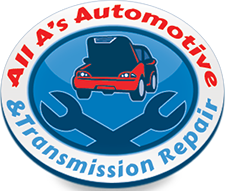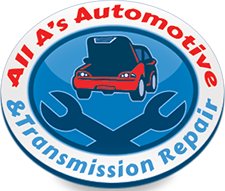Why Does My Car Make A Clunking Noise?

 Try as we might, we cannot always prevent problems with our cars. I practice routine maintenance. I always do my oil changes on time and check my tire’s air pressure regularly. And yet, sometimes (despite my best efforts), car troubles arrive out of the blue anyway. There I was, minding my own business, driving to work, and I heard a weird sound. A loud clunking noise occurred when I was changing gears, and I was unsure if I needed auto repairs or if my suspension system would drop to the ground at the next bump in the road. If this ever happens to you, continue reading for helpful tips on resolving the problem.
Try as we might, we cannot always prevent problems with our cars. I practice routine maintenance. I always do my oil changes on time and check my tire’s air pressure regularly. And yet, sometimes (despite my best efforts), car troubles arrive out of the blue anyway. There I was, minding my own business, driving to work, and I heard a weird sound. A loud clunking noise occurred when I was changing gears, and I was unsure if I needed auto repairs or if my suspension system would drop to the ground at the next bump in the road. If this ever happens to you, continue reading for helpful tips on resolving the problem.
Step One: When Does It Happen?
The first step in determining why your car makes a clunking noise is to identify when the sound occurs. Is it all the time, or just when your car does certain things, like changing gears? Since the average vehicle contains over 30,000 individual parts, it’s very helpful to narrow down when the noise happens. For example, does it occur only when driving over 40 miles an hour or only when turning left? Let’s look at some common instances when a clunking noise happens.
Accelerating
There are few things more unsettling than hearing a loud clunking noise from your car when accelerating. Note if the clunking occurs during slow or hard acceleration. Maybe you notice the noise once you’ve established your speed over time, or maybe it occurs only at specific speeds. Typical components that may create clunking noises while accelerating include:
- CV Joints
- Engine Mounts
- Exhaust Components
- Suspension Components
- Transmission Mounts
- U-Joints
Braking
Hearing a loud clunk while decelerating or braking hard can be a danger sign. Especially if it takes longer to slow down and stop your car than usual. The braking system is crucial for driver safety. If you are unable to identify and resolve the issue, schedule a diagnostic service immediately. Of course, other components may create a clunking noise when braking, even though they are not in the braking system. Below is a partial list of parts that may clunk while braking.
- Brake Calipers
- Brake Pads
- CV Joints
- Engine Mounts
- Suspension Components
- Tie Rods
- Transmission Mounts
- U-Joints
Changing Gears
Sometimes, you may hear a clunk when changing gears in vehicles with an automatic or manual transmission. You may notice it more often when shifting into ‘reverse’ or in and out of ‘park’. Components that can cause a clunking noise when changing gears include:
- CV Axles
- Driveshaft U-Joints
- Low Transmission Fluid
- Transmission Mounts
Driving Over Bumps
If you hear a clunking noise while driving over speed bumps, rough roads, or driveways, the suspension system is a good place to start. Components to inspect include:
- Ball Joints
- Control Arm Bushings
- Engine Mounts
- Leaf Springs
- Misaligned Wheels
- Shock Absorbers
- Struts or Strut Mounts
- Sway Bars
Turning
Vehicles can also experience clunking noises while turning. Note whether the sound occurs when turning in just one direction or both. Does the noise happen if the turn is sharp or during gentle direction changes, like changing lanes? Inspect the following components for damage, wear, or malfunction:
- Bushings
- CV Joints
- Engine Mounts
- Exhaust System Mounts
- Steering Components
- Suspension Components
- Wheels
Step Two: Where Does It Happen?
The next step is a diagnostic inspection. Once you know when the clunking noise happens, you can target where it happens. Try looking at your car as a set of geographical parts (instead of a single unit) to reduce the guesswork involved. Isolating specific systems or components helps diagnose the cause. Try parking your vehicle and recreate the circumstances when you hear the noise. You can turn the steering wheel, apply pressure to the front or rear of your car, and over each tire. Take a friend along for a test drive and have them sit in different seats in the car to listen for the sound while accelerating or braking. Below are suggestions to target a few systems and components by location.
Vehicle Front-End
It’s important to perform a comprehensive, front-end vehicle inspection to determine which part is defective.
Engine & Transmission Mounts
Engine & transmission mounts absorb much of the movement generated by engine and transmission operation. However, worn, loose, or broken mounts allow the engine and/or transmission to move around. These movements may be severe enough to bang into other nearby parts, creating noise.
Steering System
The steering systems contain bushings that can fail over time. If they fail, you may hear clunking while driving on uneven or rough roads. You may also feel excessive play in the steering rack, which can lead to difficulties maintaining control of your car.
Front Suspension
Your vehicle’s front suspension system lessens front-to-back movements during acceleration and braking. When these components wear out, this movement becomes more pronounced. If a vehicle’s undercarriage rocks against its bump stops, a clunking noise occurs.
Vehicle Rear-End
Now, perform a comprehensive rear-end vehicle inspection to determine which part is defective.
Exhaust System Mounts & Brackets
A series of mounts and brackets under your car attach the exhaust system to the chassis. They are welded or secured with a nut and fastener combination. The welded mounts and brackets are subject to corrosion over time, which weakens the exhaust system’s support. Additionally, the nut and fasteners can loosen from degraded insulators. These broken or worn-out mounts and brackets allow excessive exhaust movements during use, resulting in audible sounds.
Rear Suspension
The rear suspension works with the front suspension to smoothly reduce your car’s movements and enhance vehicle control. In general, the suspension system keeps your vehicle’s wheels in contact with the road and the body from connecting to the ground. Faulty suspension components upset this balance, so check them carefully for signs of wear and leaks.
Vehicle Tires & Rims
Your car’s wheels take a real beating every time you drive. They are in constant contact with the road and carry the weight of your vehicle over every uneven surface. Take the time to inspect each tire and rim for wear, damage, and leaks.
Tire Tread
Uneven tire tread wear doesn’t usually create clunking noises but may be a sign of misalignment. Misaligned or unbalanced wheels can cause unusual noises while driving. If your tires have excessive tread wear, have them checked by a professional.
Rims & Hubcaps
Damaged rims or loose hubcaps can cause a clunking sound at certain driving speeds or under specific conditions. Thoroughly inspect each wheel, including the hubcaps if equipped, for cracks, dents, or other damage. Check each lug nut for tightness. If any are loose, the wheel may wobble, creating a clunking noise while turning, accelerating, or stopping.
Road Surface
Certain road surfaces can create a clunk or thump sound that is not due to a failing automotive component. Rough roads, streets under construction, and poorly maintained road surfaces all contribute to increased road noise. If you only hear the noise while driving on a specific roadway, then it may indeed be due to the road surface itself.
Step Three: Resolve The Problem
If you have worked your way through steps one and two, you have reached the final step – resolving the problem. With a few tools and a little elbow grease, you can repair many issues that cause clunking noises yourself. However, some auto repairs may require more expertise than you possess. Occasionally, the issue you found may be the result of another problem you didn’t find. Under these circumstances, it may be best to take your findings to your auto service technician for review. They will use your information and their experience to complete the auto repair correctly.
Diagnostic Inspection & Auto Repair in Midland, MI
All A’s Automotive & Transmission Repair is a family-owned and operated business located in Midland, MI. We offer diagnostic inspections and auto repair for all foreign and domestic vehicles. Our skilled and dedicated technicians will determine which component is responsible for the clunking noise in your car when changing gears.
Schedule Service
Call All A’s Automotive & Transmission Repair at (989)631-4672 or visit our website today to schedule your comprehensive diagnostic inspection.
Posted in: Auto Diagnostics
Leave a Comment (0) ↓
